#thirteenth amendment
Explore tagged Tumblr posts
Text

June 5, 2025
Today, we consider the ethics of Notes to John, meditate on the personhood of a river, and remember Edmund White.
On Lit Hub dot com:
Evelyn McDonnell on the ethics of Notes to John, commercial exploitation, and the selling of Joan Didion’s privacy. | Lit Hub Criticism
Daegan Miller considers the beauty and politics of Robert Macfarlane’s Is A River Alive? | Lit Hub Criticism
“Here’s a novel so pumped up and shredded it can’t possibly sit still on a shelf.” 5 book reviews you need to read this week. | Book Marks
Brando Simeo Starkey on the Thirteenth and Fourteenth Amendments and the existential fight to enshrine civil rights in the Constitution. | Lit Hub Politics
Maris Kreizman wants to know: Why are there so many new June books? | Lit Hub Craft
Books by Mónica de la Torre, Roy Claire Potter, Ella Frears, and more are on Kate Briggs’s TBR! | Lit Hub Reading Lists
Jeremy Atherton Lin on writing love and politics: “We conspired to look unflinchingly at the messy parts.” | Lit Hub Memoir
David Rooney on John Alcock and Arthur Whitten Brown, the fearless aviators who helmed the first (forgotten by history) non-stop trans-Atlantic flight. | Lit Hub History
“The more I wrote, the more I realized that fear wasn’t me: fear was a parasite clinging to me for survival, a leech sucking the life from my body.” Greta Morgan recalls rediscovering creative expression after singing for the last time. | Lit Hub Music
“I was right. Janine had been right. Emma was right.” Read from Yrsa Daley-Ward’s new novel, The Catch. | Lit Hub Fiction
From around the internet:
“Isn’t it possible that dispatching a 21st-century writer to Paris to tramp along in Twain’s wake might enhance the modern reader’s appreciation of Twain’s work by proxy? It’s certainly not impossible.” Caity Weaver attempts to follow in Mark Twain’s (Parisian) footsteps. | The Atlantic
Michael Bobelian considers the renewed relevance of Arthur Derounian’s best-selling 1943 exposé of the United States’ Nazi underworld, Under Cover, which “served as a wake-up call for his contemporaries and a permanent record of the reactionary forces lurking just beneath the surface of the world’s oldest democracy.” | Los Angeles Revw of Books
Colm Tóibín, Alan Hollinghurst, Olivia Liang and more remember Edmund White. | The Guardian
Madeleine Watts revisits the hypnotic nature of Antigone Kelefa’s The Island. | The Nation
“Truly radical political theories are born from the lived experience of humans and only systematized by philosophers later.” Ed Simon resurrects the memory of Masaniello, the man behind the Neapolitan Revolt of 1647. | The Baffler
Darren Roso examines Karl Korsch’s contributions to Marxist theory. | Jacobin
Follow us!
Newsletters
Other socials
Lithub.com
#lit hub daily#lit hub#literary hub#joan didion#robert macfarlane#book reviews#reading lists#kate briggs#fourteenth amendment#thirteenth amendment#mark twain#edmund white#Masaniello#history#marxism
2 notes
·
View notes
Text

"Juneteenth--Freedom Day"
On September 22, 1862, President Abraham Lincoln announced that the Emancipation Proclamation would go into effect on January 1, 1863. The term “Juneteenth” was first used in the 1890s and is a portmanteau of the words "June" and "nineteenth", referring to June 19, 1865, the day when Major General Gordon Granger ordered the final enforcement of the Emancipation Proclamation in Texas at the end of the American Civil War.
Juneteenth is also celebrated by the Mascogos, descendants of Black Seminoles who escaped from slavery in 1852 and settled in Coahuila, Mexico.
Although this event commemorates the end of slavery, emancipation for the remaining enslaved population in two Union border states, Delaware and Kentucky, would not come until December 6, 1865, when the Thirteenth Amendment was ratified.
The holiday is considered the "longest-running African-American holiday" and has been called "America's second Independence Day".
The Thirteenth Amendment & the end of slavery, one step closer to realizing the ideal that is the United States.
1 note
·
View note
Text
Lincoln gave the Confederate states until the end of the year to return to the Union if they wanted to maintain slavery. They ignored him.
RIchard Wormser, The Emancipation Proclamation
#states rights#confederate#confederacy#thirteenth amendment#richard wormser#wormser#the emancipation proclamation#emancipation proclamation
0 notes
Text
On February 24, 1865, the Kentucky General Assembly refused to endorse the end of slavery in America when it voted against ratification of the Thirteenth Amendment, which abolished slavery "except as punishment for crime."
As the Civil War began in 1861, Kentucky, a border state, remained in the Union, but the state's legislature did not fully support President Abraham Lincoln or his Republican administration because lawmakers worried that Lincoln would abolish slavery. Throughout 1861, President Lincoln assured Kentuckians he had no intention of interfering with the state's "domestic institutions."
In March 1862, President Lincoln proposed a plan of gradual emancipation for the border states, offering to compensate enslavers who freed the Black people they enslaved. When the congressional delegations for the border states turned down that offer, President Lincoln issued a draft Emancipation Proclamation in September 1862 and signed the final version on January 1, 1863, which applied only to enslaved people in states that were in rebellion. Thus, it allowed for enslavement to continue in Kentucky, along with Maryland, Delaware, Missouri, and Tennessee, as well as portions of Virginia and Louisiana that were occupied by the Union.
Kentucky legislators continued to oppose all efforts to abolish slavery in the coming years, and on February 24, 1865, the Kentucky General Assembly rejected the Thirteenth Amendment. Prominent politicians and other public figures harshly criticized President Lincoln and members of Congress, and the Kentucky legislature expressed their disapproval of the amendment's adoption by politically siding with the former Confederacy throughout the post-Civil War era. Kentucky did not officially adopt the Thirteenth Amendment until 1976.
#history#white history#us history#black history#democrats#republicans#Kentucky General Assembly#Thirteenth Amendment#Emancipation Proclamation
0 notes
Text






















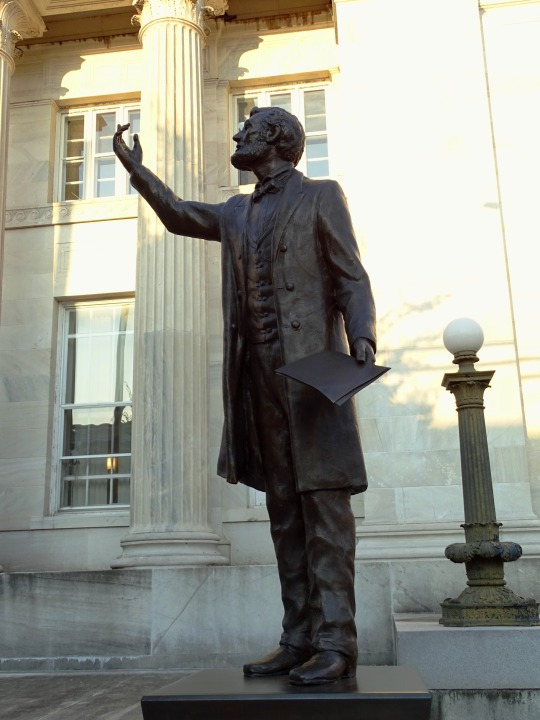


President Abraham Lincoln signed the Thirteenth Amendment to the United States Constitution (abolished slavery and involuntary servitude) on February 1, 1865.
National Freedom Day
National Freedom Day, which celebrates the freedom that Americans share, takes place on the anniversary of the date in 1865 when Abraham Lincoln signed a joint House and Senate resolution that proposed the 13th Amendment, which would go on to outlaw slavery after being ratified by the states. Not only does the holiday celebrate freedom, but it honors the signing of the resolution. Lincoln did not live to see the resolution ratified, as he died the following spring, but it was ratified on December 6, 1865, and the amendment was adopted on December 18, 1865.
Richard R. Wright Sr.—not to be confused with his son or with the novelist—was a nine-year-old slave in Georgia when the resolution was signed. He went on to become a community leader in Philadelphia and was involved in commemorations such as the fiftieth anniversary of Emancipation Proclamation in 1913 and the "Seventieth Anniversary of Negro Progress" in 1933. He wanted a day for freedom for all Americans, being inspired by President Roosevelt's call for Four Freedoms in the early days of World War II, before the United States had entered the war. He wrote in the Philadelphia Tribune that in order for Americans to be free, African Americans had to be included in that freedom. He then created the National Freedom Day Association and invited leaders to a Philadelphia meeting to come up with plans for a day. This predated the Civil Rights Movement by over a decade, and segregation was still legal at the time.
The first National Freedom Day was celebrated on February 1, 1942, although the day was not officially recognized by the government at the time. That year, 3,500 people gathered at Philadelphia's Academy of Music, the Pledge of Allegiance was recited in front of the Liberty Bell, and there was a parade. Wright continued to promote the day. He went on a national speaking tour, and lobbied Congress over the next five years, until his death in 1947.
On June 30, 1948, Congress passed a joint resolution designating February 1 as National Freedom Day, and President Truman signed it into law the same day. Although National Freedom Day did not become a federal holiday, as Wright had wanted, it is a part of the U.S. Code. President Truman issued a proclamation for the day on January 25, 1949, and it was first officially celebrated that year.
Some cities have festivals, parades, or other events on the day. Delegates have gathered at Independence Hall and Congress Hall in Philadelphia, and a wreath is laid at the Liberty Bell each year. Some people reflect on the freedoms we have in the United States and the importance of having them. Lessons about the topic of freedom and the significance of February 1, 1865, to American history are used in classrooms.
Although National Freedom Day was proclaimed nationally by the president, for many years it was more of a localized holiday in Philadelphia, and did not become as widespread as holidays such as Black History Month, Martin Luther King, Jr. Day, and Juneteenth. In more recent years, it has gained more popularity online. Additionally, in 2010 and in subsequent years, President Obama designated January as National Slavery and Human Trafficking Prevention Month, and had it culminate with National Freedom Day.
How to Observe National Freedom Day
Celebrate the day by checking for festivals or other events in your city. You could reflect on freedom by reading the 13th Amendment or other documents that address the subject, such as the Declaration of Independence, the Emancipation Proclamation, or President Roosevelt's Four Freedoms speech. You could also read a book that explores personal and political freedoms. If you are able to travel, attending the laying of the wreath at the Liberty Bell in Philadelphia is a good way to spend the day, as would be seeing the Statue of Liberty in New York City. If you are an educator, incorporate National Freedom Day and the 13th Amendment into your lesson plans for the day.
Source
#Robert Russin#National Freedom Day#NationalFreedomDay#1 February#Abraham Lincoln#Thirteenth Amendment#1 February 1865#160th anniversary#US history#Sherman Summit#Mount Rushmore National Memorial#Gutzon Borglum#Stanley J. Watts#vacation#travel#original photography#Henry K. Bush-Brown#South Carolina#African-American History Monument by Ed Dwight#San Diego#Gettysburg#Breaking the Chains by Melvin Edwards#Emancipation Statue by Thomas Ball#Boston#J. Otto Schweizer#tourist attraction#USA
1 note
·
View note
Text
0 notes
Text
The Silent Oppression: Wage Slavery in Iowa’s Prisons
By, Cliff Potts, WPS News, Editor-in-ChiefBaybay City | February 15, 2025 In the heartland of America, nestled within the confines of the Iowa State Penitentiary, lies a system that quietly perpetuates a new form of modern-day slavery. Here, incarcerated individuals engage in the cultivation of trees, ostensibly part of a rehabilitation program, yet tethered to an exploitative scheme that deeply…
#call to action#criminal-justice#economic injustice#ethical concerns#exploitation#human dignity#inmate wages#Iowa State Penitentiary#labor rights#prison#prison labor#prison reform#prisoner exploitation#recidivism#rehabilitation#Thirteenth Amendment#wage slavery
0 notes
Text
Limited Immunity: Our Democracy Now the Stubborn Turd Stuck in the Bottom of the Toilet Bowl
The Roberts Court is dragging our democracy to the bath water to drown it, and it hardly seems as if any of us are kicking and screaming about it. All we can seem to do is mumble, "Old! So old! Biden so old." Remember Election 2016!
SUMMARY: Are those who do not remember history doomed to repeat it? It seems like we are. Here it is days after SCOTUS dropped the limited immunity turd on our democracy, and we’re still wringing our pearls and clutching our fainting couches, and falling onto our hands about Biden so old. Do we remember how we got a 6-3 Court? Are we happy with the decisions of the Robert’s White Nationalist Full…

View On WordPress
#A More Perfect Union#All People Are Created Equal#Black Jobs#Corn Kernal#Election 2016#Election 2024#Flushed#Limited Immunity#Pat Paulson#SCOTUS#Super Power#Supreme Court#Thirteenth Amendment#Toilet Bowl#Turd
0 notes
Text
Who Freed the Slaves?
The typical answer to that question one would expect is “Abraham Lincoln.” The hero of this book, though, is not Lincoln, who appears more as an impediment in this narrative than a crusader for freedom. The hero of this book, though, is Ohio Congressman James Ashley, who was ably played by the highly talented character actor David Costabile in the Steven Spielberg movie, Lincoln. Ashley was a…

View On WordPress
0 notes
Text
“in my indulgence era” you’re doing an advertisement for walmart, a company that supports and profits from slave labor under the 13th amendment, which prohibits slavery except as punishment for a crime, which allowed the overwhelming enslavement of black and brown bodies that began during the colonial era to continue and set the stage for the current paradox of majority black and brown bodies incarcerated in us prisons. when and where and how is that considered indulgence. what are you fucking indulging in. legalized enslavement in the 21st century?
#blue rambles#walmart#consumerism#capitalism#united states#13th amendment#thirteenth amendment#advertisement#the us prison system is legalized slavery#are you supporting it?#black history is american history#black history#begging y’all to READ about this and stop shopping @ walmart#target whole foods and mcdonald’s too#so many more#so. many. more.#target#whole foods#aldi#us prison system#us prisons
1 note
·
View note
Text
Teen Vogue article on enslaved people in New Jersey at the end of the Civil War.
Every year on Juneteenth there seems to be some misunderstandings of the significance of the day, ranging from the idea that it took two years for Texas to learn of the Emancipation Proclamation (false) to it being the final end of slavery in the United States (not quite). I started writing up some thoughts on the long and complicated history of emancipation in the United States that turned into this long and complicated timeline. I'm hoping this will be useful for greater understanding of the importance of Juneteenth.
1780 - Pennsylvania became the first state to pass an Abolition Act. This legislation began ending slavery through gradual emancipation. Gradual emancipation became the model followed in the Northern states include Rhode Island, Connecticut, New York, and New Jersey from the 1780s to the 1820s. Gradual emancipation typically freed people born after a certain date and children born to enslaved people, while others were kept enslaved until they reached a certain age or for the remainder of their lives. By the 1840s these states no longer had enslaved people except in New Jersey where there were still 16 people in enslavement until 1865. New Hampshire never legally abolished slavery, but was also effectively a free state by the 1840s.
1783 - Enslaved people in Massachusetts sued for their freedom stating that they should be free under the new Massachusetts state constitution. The Massachusetts Supreme Judicial Court agreed, effectively making Massachusetts the first state to fully abolish slavery.
1791 - Vermont entered the Union as a new state with abolition of slavery encoded in the state constitution. Ohio, Indiana, Maine, Michigan, Iowa, Illinois, Wisconsin, California, Minnesota, Oregon, Kansas, and Nevada also entered the Union as free states.
1808 - The Act Prohibiting Importation of Slaves goes into effect making the transatlantic slave trade illegal. However, since the children of enslaved women were considered property of the enslaver, slavery propagated within the United States and the domestic slave trade thrived. Smugglers also continued to traffic enslaved people from Africa and the Caribbean to the United States, with the latest known instance being the Clotilda arriving in Alabama in 1860.
April 12, 1861 - The American Civil War begins after eleven Southern states begin an insurrection against the Federal government. The key issue is the expansion of slavery to new states and territories which newly elected President Abraham Lincoln opposes. At the start of the war, the official position of Lincoln and the Federal government is that the war is to preserve the Union, not to end slavery.
January 1, 1863 - The Emancipation Proclamation goes into effect freeing enslaved people in states in insurrection against the United States. This was primarily a military measure meant to deny the Southern insurrectionists the labor of enslaved people. The Emancipation Proclamation excluded the border states of Delaware, Maryland, Kentucky, and Missouri as well as parts of Louisiana and Virginia that were already under control of the Union Army. Since the Proclamation only applied to places not controlled by the Federal government, it effectively freed no one. However, enslaved people who escaped to the Union lines or were in territory subsequently captured by Federal troops were then permanently emancipated.
June 20, 1863 - The western counties of Virginia separate to form the new state of West Virginia, with gradual abolition written into the state constitution.
November 1, 1864 - Maryland abolishes slavery.
January 11, 1865 - Missouri abolishes slavery.
February 27, 1865 - Tennessee abolishes slavery.
June 19, 1865 - As the war was going poorly for the Confederacy, enslavers began sending enslaved people to Texas, the most remote of the slave states. Texas would be the final state to surrender to the Union. On June 19, Union Major General Gordon Grange declared all enslaved people free in accordance of the Emancipation Proclamation. This is the origin of Juneteenth.
December 18, 1865 - The Thirteenth Amendment was passed by Congress on January 31, 1865 and after ratification by three-fourths of the states, it became effective on December 18. The Amendment effectively ended chattel slavery throughout the United States including Kentucky, Delaware, and the 16 enslaved people in New Jersey.
BUT…the Thirteenth Amendment also include a penal labor exemption, meaning that people convicted of crimes could be forced to perform labor. From the convict lease programs of the 19th century, the the chain gangs of the 20th century, to mass incarceration in the 21st century, penal labor has been abused while often being targeted against Black people.
In other words, we still haven't seen the full abolition of slavery in the United States.
21 notes
·
View notes
Text
smthin smthin nu!who's journey of the doctor and earth as home
nine's continued discomfort with "the domestic"
ten staying with the tylers' over christmas and then resisting the same with donna after losing rose/that life, and that continuing throughout knowing martha, then, later still getting to know wilf and leaving donna at her home before cutting ties with everyone from that life
eleven for a brief time living with the ponds, but with one step inside the tardis the whole time, and briefly going to clara's one christmas
twelve barely getting involved in clara's home life at all, but then with bill going back to the idea of family in a sort of tentative cautious kind of way? -- taking a picture of her mum for her, helping her move into her (briefly) held accommodation, and generally being read as bill's grandfather/family
thirteen meeting yaz' family and being asked if they're dating, and travelling with multiple generations of a family for some time (echoing rose and jackie and mickey, donna and wilf, the ponds + rory's dad), and possibly having some very conflicting feelings about leaving especially yaz behind
fourteen staying with the noble family
#i think... it is interesting... Telling even perhaps... that martha never had this.... telling in the sense that martha deserves better#ten DID of course meet martha's family but their whole memory of everything is: horror fear torture bad horror bad#not that martha now would want a domestic involvement with the doctor but oof... oh she hit brick walls every time didnt she#wherever martha is fourteen and/or fifteen should make some kind of amends#not that the events of the doctor's daughter was ten's fault but man#martha never caught a break did she#doctor who#dw#doctor who spoilers#dw spoilers#the doctor#the tenth doctor#the eleventh doctor#the twelfth doctor#the thirteenth doctor#the fourteenth doctor#no analysis of nu!who is complete without going *AND MARTHA'S STORY IN ALL THIS!*
41 notes
·
View notes
Text
Slavery implies involuntary servitude,-a state of bondage; the ownership of mankind as a chattel, or, at least, the control of the labor and services of one man for the benefit of another, and the absence of a legal right to the disposal of his own person, property, and services. This amendment was said in the Slaughter-House Cases, 16 Wall. 36, to have been intended primarily to abolish slavery, as it had been previously known in this country, and that it equally forbade Mexican peonage or the Chinese coolie trade, when they amounted to slavery or involuntary servitude
Henry Billings Brown, Plessy v. Ferguson
#thirteenth amendment#human trafficking#immigrant labor#child labor#henry billings brown#brown#1896#brown 1896#plessy v. ferguson#plessy v ferguson
0 notes
Text
On this day May 18, 1896
Supreme Court Establishes “Separate But Equal” Doctrine as Law in Plessy v. Ferguson
On May 18, 1896, the U.S. Supreme Court released a 7-1 decision in Plessy v. Ferguson, a case challenging racial segregation laws in Louisiana, holding that state-mandated segregation in intrastate travel was constitutional as long as the separate accommodations were equal.
The Court had heard arguments a month earlier on April 13. Homer Plessy, a Black man who had been arrested for boarding a "white only" passenger car, argued that the state segregation law violated the Thirteenth and Fourteenth Amendments, which abolished slavery and established equal protection of the laws.
In 1890, Louisiana passed the Separate Car Act, requiring railroad companies to provide separate passenger cars for Black and white travelers. The Comite des Citoyens (“Committee of Citizens”), a New Orleans group of Black men who employed civil disobedience to challenge segregation laws, wanted to challenge the law's constitutionality. When Mr. Plessy—a Black man—was arrested for boarding a “white only” passenger car, the committee helped him to appeal, and the case eventually reached the U.S. Supreme Court.
On May 18, Justice Henry Brown wrote the majority opinion, which held that the Louisiana law did not violate the Thirteenth or Fourteenth Amendments because it did not interfere with an individual’s personal freedom or liberties. He claimed the Court could uphold the notion that all people are equal before the law in political and civil rights but could not override social inferiority based upon the distinction of race.
Justice John Marshall Harlan dissented, writing that the Louisiana law was in direct violation of the Thirteenth and Fourteenth Amendments' promise of protection of all civil rights related to freedom and citizenship. Justice Harlan specified that the law was a blatant attempt to infringe upon the civil rights of African Americans and that the Court inappropriately yielded to public sentiment at the expense of constitutional safeguards. He predicted the Court’s decision would lead to racial confrontation.
Plessy v. Ferguson legally sanctioned racial segregation by establishing the “separate but equal” doctrine as national law. Public services and accommodations were segregated for decades, until the Court’s Brown v. Board of Education decision in 1954 overruled the application of “separate but equal” in public education and the Civil Rights Act of 1964 prohibited it in public accommodations.
#history#white history#us history#Plessy v. Ferguson#Homer Plessy#Black history#Justice Henry Brown#Henry Brow#John Marshall Harlan#civil rights#Separate But Equal#African Americans#Fourteenth Amendment#Thirteenth Amendment#Civil Rights Act of 1964#May 18 1896#1896#jumblr#am yisrael chai
0 notes
Text

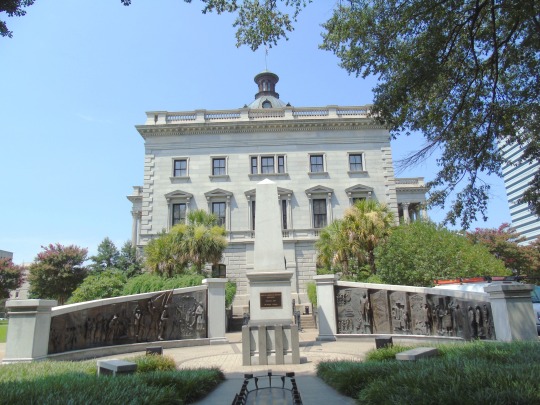
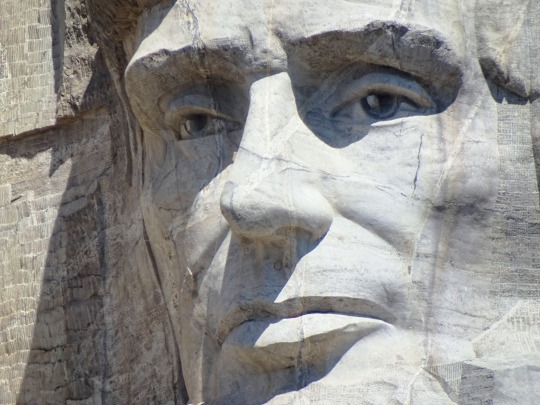

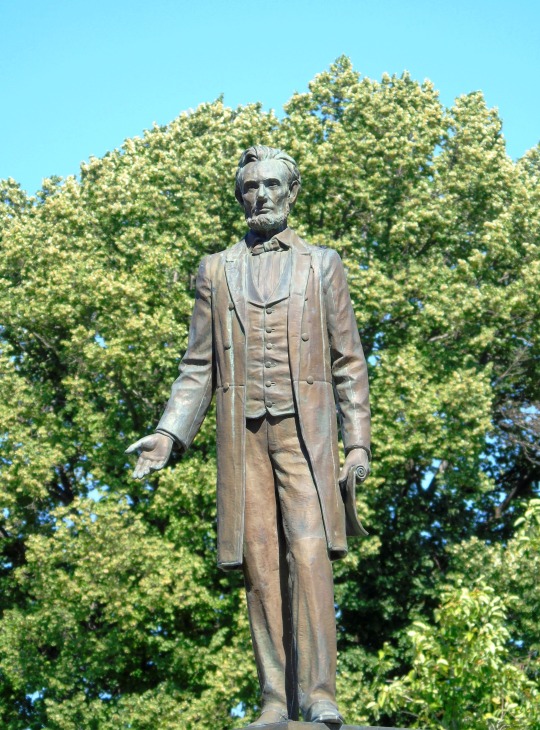
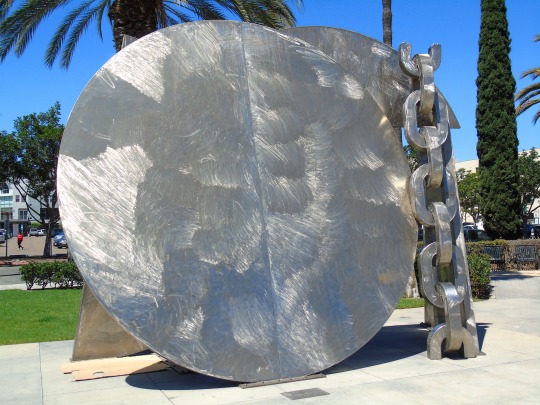
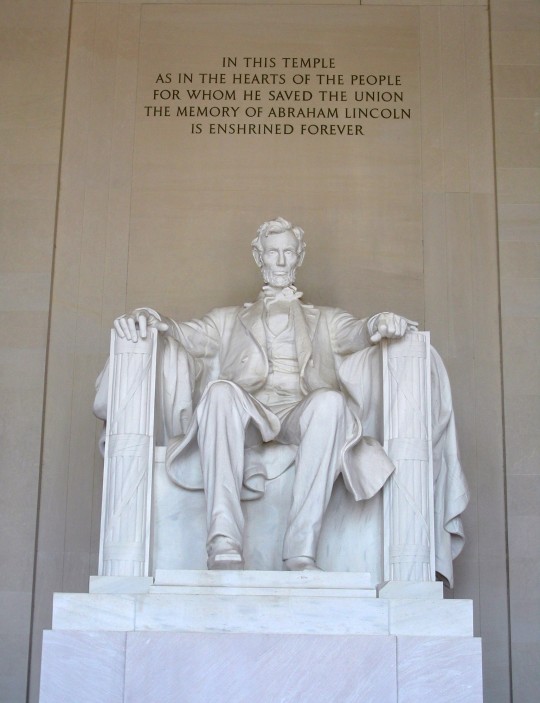

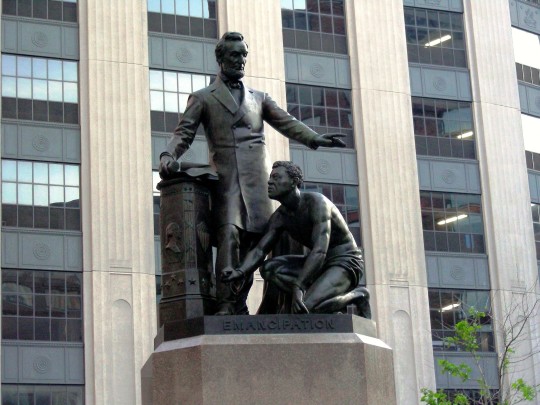


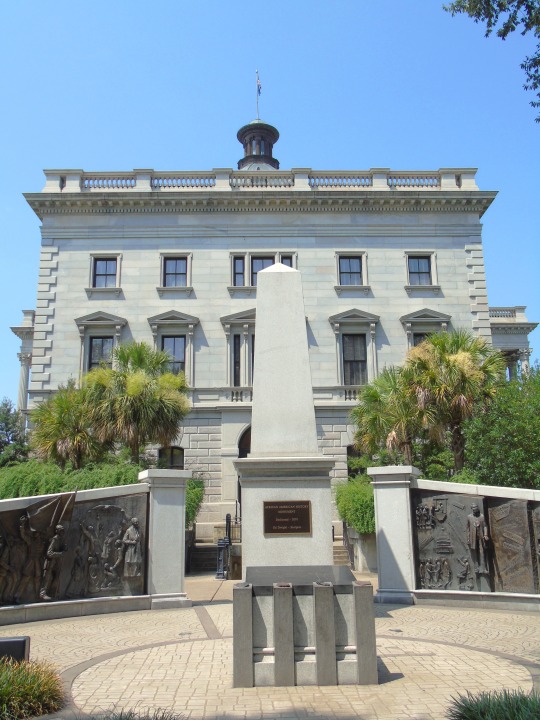




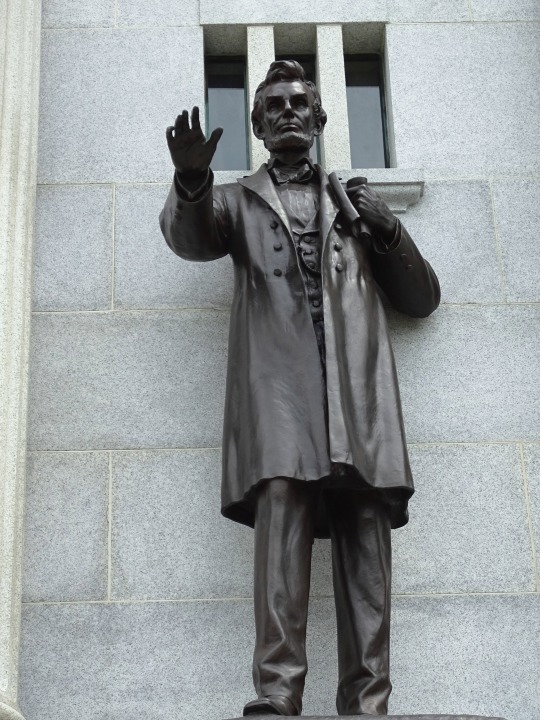
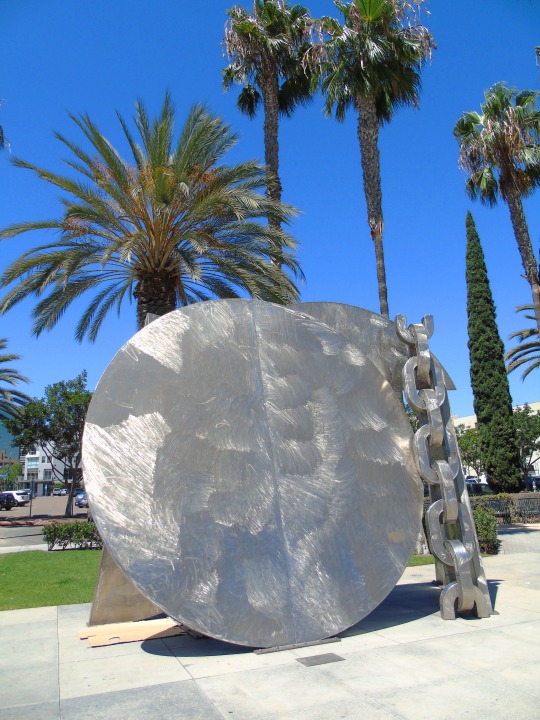

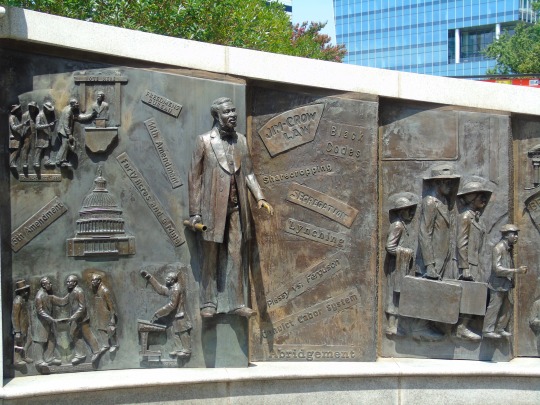




President Abraham Lincoln signed the Thirteenth Amendment to the United States Constitution (abolished slavery and involuntary servitude) on February 1, 1865.
National Freedom Day
Honoring the signing of the 13th Amendment to the Constitution, which abolished slavery in America, National Freedom Day is an annual United States observance to celebrate the nation’s freedom and recognize the efforts of those who fight to protect it.
History of National Freedom Day
National Freedom Day was established by a Civil Rights leader, businessman, and former slave named Major Richard Robert Wright Sr. Wright, who was born into slavery in 1855, saw the need for a day to commemorate when the 13th Amendment was signed, and to identify the ongoing struggle for civil rights. He believed that the 13th Amendment was an important milestone in establishing freedom and equality for all Americans, and he wanted to ensure that it would never be forgotten.
In 1941, Wright began lobbying for the establishment of National Freedom Day and, in 1948, a year after his passing, it was officially recognized by the United States government. It is celebrated every year on February 1st, the same day the 13th Amendment was signed into law in 1865.
National Freedom Day serves as a reminder of the long and difficult journey towards equality for all American citizens. It is a day to remember the struggle of those who fought for their rights, and to recognize the continuing fight for civil rights.
National Freedom Day Timeline
February 1, 1865 13th Amendment Abolishes Slavery
The 13th Amendment to the Constitution is signed into law, officially abolishing slavery in the United States. This marks a significant step towards freedom and equality for all Americans and marks the end of a long and difficult journey.
June 30, 1948 National Freedom Day Established
This day is officially recognized by the United States government as a day of observance, signed into law by President Harry S. Truman.
1960s Civil Rights Movement Gathers Steam
The Civil Rights Movement of the 1960s sees a renewed push for equality and freedom for all Americans. It is a time of great progress and change, and serves as a reminder that the fight for civil rights is far from over.
November 4, 2008 Barack Obama Elected President
The first African American president of the United States, is elected, symbolizing progress and change in the ongoing fight for civil rights.
January 20, 2021 First African-American and Asian-American woman vice president
Kamala Harris becomes the first African-American and Asian-American woman to hold the office of Vice President, a symbol of progress and change.
How to Celebrate National Freedom Day
National Freedom Day is celebrated annually on February 1st by individuals, organizations, and communities across the United States. Many states observe National Freedom Day with a special ceremony, parade, or other event, along with speeches, performances and educational programs.
Many people choose to mark the day with their own private ceremonies and celebrations, such as visiting historical sites, lighting candles, or making donations to organizations that promote freedom and civil rights. Here’s a few ideas for how to observe the day:
Attend a National Freedom Day Event
Many communities hold events or ceremonies to commemorate National Freedom Day. These events may include speeches, performances, or educational programs and can be arranged by local schools, churches, or civil rights groups. Attending one of these events is a great way to honor the legacy of those who strove for freedom, and to learn more about the history of the 13th amendment.
Learn About the History of Slavery
National Freedom Day is an opportunity to learn about the history of the Civil Rights Movement. Read books, watch documentaries, or visit museums to deepen your understanding of this important part of American history. By learning about the past, we can better understand and appreciate the progress that has been made and the work that still needs to be done.
Participate in a Community Service Project
National Freedom Day is a day to give back to your community and promote equality and freedom for all. Participate in a volunteer or community service project to make a positive impact in your community. This could include volunteering at a local school, community center, or non-profit organization. It could also include participating in a community clean-up or fundraising event.
Have a Discussion About Equality
Use National Freedom Day as a chance to have a family discussion about freedom and equality. A great way to raise awareness and promote understanding and empathy within your own family is to talk about the Civil Rights Movement with them, the history of slavery, and the current state of civil rights in America. Encourage family members to share their thoughts and feelings about these issues.
Source
#Emancipation Statue by Thomas Ball#Boston#Massachusetts#San Diego#California#Breaking the Chains by Melvin Edwards#Washington DC#USA#Daniel Chester French#Gettysburg#Abraham Lincoln#Thirteenth Amendment#1 February 1865#anniversary#US history#original photography#tourist attraction#Mount Rushmore National Memorial#Gutzon Borglum#National Freedom Day#NationalFreedomDay#South Carolina#Columbia#African-American History Monument by Ed Dwight
1 note
·
View note
Text
i’m sorry this is just so funny to me

#extremism#it literally writes itself#but decriminalizing marijuana would be bad because the majority of people in prison are in for possession as of like 2019#my numbers are out of date#but whatever#and guess what ???#the thirteenth amendment allows for slavery as punishment for crime so there a massive labor force easily & socially acceptably exploitable#and it would cost a lot to get rid of that :(((#plus they’re mostly people of color#hate the US prison system oh my god
0 notes